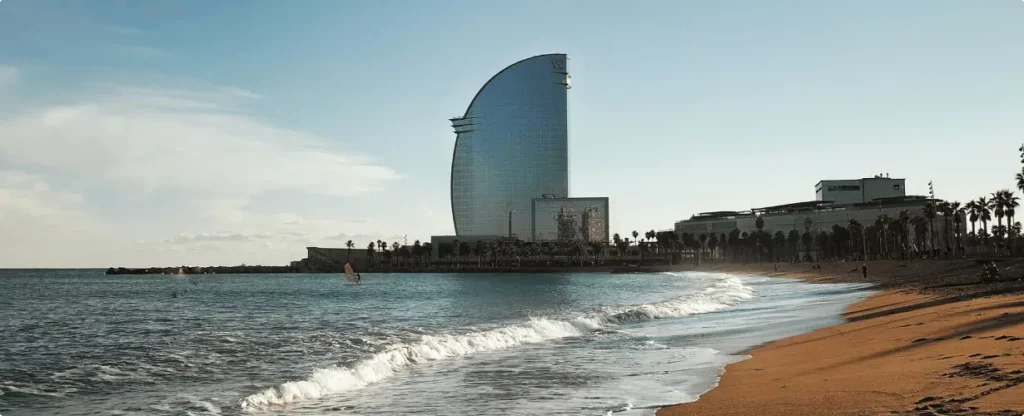
Divorce in Spain
When experiencing a marital crisis, having legal advice on hand with expertise and understanding of mixed international families is crucial.
Our expert lawyers work with cases like yours every day and will help you reach a suitable agreement with your spouse.
How can Klev&Vera help you when going through a divorce?
Contact us
Explain your situation
Let us find the best solution
Klev&Vera, your English speaking lawyers in Spain.
When it comes to dealing with situations which can require expertise in international legal systems, such as an international divorce, it’s easy to turn to Google or consult local lawyers with insufficient knowledge of international laws.
Each and every divorce situation is different, and we pride ourselves on our ability to work in an empathetic and supportive way to find custom-made resolutions which are tailored to your unique needs. When you choose to work with us, you’re opting for complete transparency throughout your case, immediate answers to your queries and a competitive price for the service of a firm with a reputation in the Barcelona Bar Association.
Klev&Vera can provide a real solution when faced with the difficult matter of marital separation and divorce in Spain. With specialist expertise of international jurisdiction and many years’ experience working on international divorce cases under our belt, we are well-placed to offer bespoke solutions for our clients through our English-spoken service.
Let us help you today: we will advise on the most suitable procedure in your case after studying your circumstances and do our best to make the process fast and stress-free for you.
A premium service for a stress-free process.
Let us help you today!
contact us now

Anna Klevtsova
What do you need to know about divorce in Spain?
After what period of time can I get a divorce in Spain?
Unlike other countries such as the UK and USA, in Spain, divorce can be no-fault, which means after being married for 3 months you can file a divorce claim as long as you or your spouse are currently living in Spain.
Do I have to be in Spain during the divorce proceedings?
If the divorce in Spain is an amicable divorce, you don’t need to be present as long as you grant a power of attorney to a lawyer to sign on your behalf.
What can I request from the Spanish court concerning child maintenance and matrimonial assets?
The Spanish family court can fix the monthly amount to be paid for child maintenance, alimony to the former partner, divide common property (house, shares etc.), protect the less wealthy spouse allowing them to stay at the family home during a certain time, etc.
What is the process for obtaining a divorce in Spain?
If the divorce process is by mutual agreement, both spouses need to sign an agreement which regulates the custody of children who are minors, a visiting regime in favour of the non-custodial parent, child support, the use of the family home and the pensions between spouses if they are entitled to any; additionally, the dissolution and liquidation of the matrimonial property regime. If there are minors, there is a report from the Public Prosecutor’s Office, which is the public institution in charge of ensuring that the rights and interests of children who are minors are not violated. Eventually the corresponding Court will need to approve the regulatory agreement for it to become binding.
If the divorce proceedings are contentious, one of the spouses files an application with the Family Court requesting the divorce, the measures with respect to the children (custody and guardianship of children who are minors, a visiting regime in favour of the non-custodial parent, child maintenance), the attribution of the use of the family home in favour of one of the spouses, the pensions of one spouse in favour of the other, and the dissolution of the matrimonial property regime. The court processes the application and notifies the other spouse that he or she has 20 days to respond in writing to the divorce application. After the answer to the petition, a trial is held in court and the court issues a divorce decree after studying the circumstances of each case.
How long does the divorce process take in Spain?
The process of divorce by mutual consent in Spain usually takes about three months from the filing of the divorce petition with the agreement signed by both spouses.
The contentious divorce process in Spain may last between 6 months and one year from the filing of the divorce petition by one of the spouses.
Please note that delays are very common in all court procedures in Spain.
What is the role of the court in a divorce case in Spain?
In a divorce by mutual agreement, the court issues a judgement and approves the regulatory agreement signed by the spouses, where the parties have already set out the measures governing the divorce. If there are underage children, the court always asks for a report from the Public Prosecutor’s Office, who looks after the interests and welfare of children who are minors.
In contentious divorces, the court issues a judgement declaring the divorce and setting the measures with respect to the minor children, the maintenance payments for older children who are not financially independent, sets the attribution of the use of the family home and the pensions between the spouses, and declares the dissolution of the matrimonial property regime.
How is property divided in a divorce in Spain?
If there are no prenuptial or postnuptial agreements, it depends on the type of matrimonial property regime of the marriage. If it is a separation of property, each spouse is already the owner of the assets he or she has on his or her own behalf.
If the matrimonial property regime is that of common or joint property, an inventory must be made of the assets and liabilities of the marriage, and once the existing debts have been paid, the assets are divided in half.
What happens if there are children involved in a divorce in Spain? How is child custody determined in a divorce in Spain?
If the common children are minors, it must be determined which one of the parents will have custody of the children (with whom they will live) and what the visiting arrangements of the non-custodial parent will be. The custody can be in favour of one of the parents exclusively or it can be a shared custody in favour of both parents. In order to determine custody, different circumstances are taken into account, such as the availability of the parents to take care of their children, the parents’ jobs, whether or not their homes are close, the children’s school and the proximity of the parents’ home, etc.
What is the process for requesting alimony or spousal support in Spain?
The application for child support or spousal maintenance must be made in the divorce or separation proceedings.
Can a divorce be contested in Spain?
Once the divorce has been finalised, and once the judgment of the court has become final, it cannot be revoked. However, in the process of divorce by mutual agreement, if one of the spouses does not agree with the signed agreement, he/she may not ratify it in court, when summoned to do so before the judgement is issued, so the divorce by mutual consent cannot take place. In contentious divorce proceedings, the party who filed the complaint can communicate his or her wish to terminate the proceedings while they are still pending and there is no judgment, for example because the spouses have reconciled.
When the judgement is issued, the divorce cannot be revoked, but the party who does not agree with the divorce judgement can challenge it by means of an appeal, which can modify the divorce measures consisting of custody and child support, allocation of the use of the family home and alimony between the spouses.
Can you refuse a divorce in Spain?
If one of the spouses does not agree to get divorced, it will be a “contentious divorce”. It is not possible to refuse a divorce once the judgment has been issued in the divorce proceedings. Before the final judgement is issued, it is possible for the spouses to reconcile and to apply to terminate the proceedings.
How much does a divorce cost in Spain?
It depends on whether it is mutually agreed or contentious. And in contentious divorce proceedings it depends on the alimony claimed, and whether there is a dispute over the custody of the children, the attribution of the use of the family home, and the dissolution and liquidation, or not, of the matrimonial property regime. In terms of the legal fees it could be anywhere between 1,500 in very easy cases to 25,000€ or more in complex cases.
Who gets the house in a divorce in Spain?
In contentious divorce proceedings, the family home is generally awarded to the person who has custody of the children, except in cases where the more disadvantaged spouse is the other spouse.
Related news

Pet custody laws in Spain

How to obtain a Divorce Decrees in Spain

